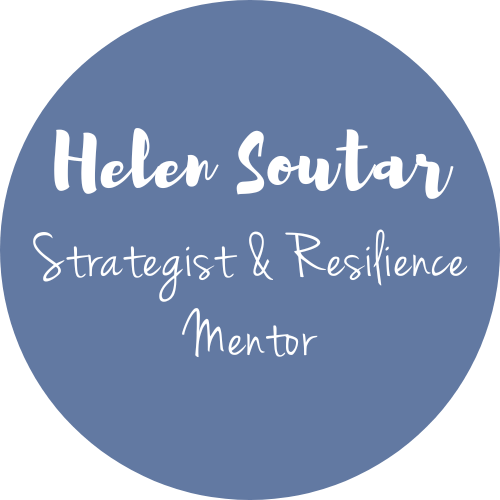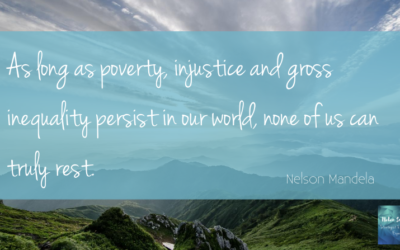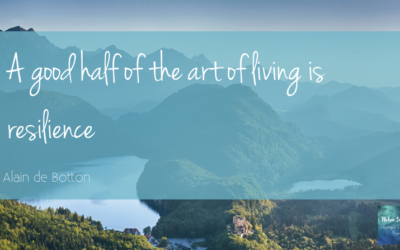3 Types of Grief…and why you should embrace them
For many of us, the first thing we think of when we hear grief is death. It’s bereavement, the loss of someone you love…but what about other types of grief? And how do we make the most of all of our experiences with grief?
First of all, a little bit of context – my beloved Grandma died 6 weeks ago. I was her main carer in her final weeks (after being her respite carer for the last 8 years) and I’m still learning to live without her. So let’s start there…
1. Bereavement grief
This is the sometimes unbearable feeling of loss, of there being a hole in your life that you just don’t know how to fill. Common emotions that come along for the ride include disbelief, denial, anger, confusion, fear, sadness, regret. This type of grief can leave you feeling like your world has spun off its axis – how do you rebuild your life without one of the key players? What if you’d done something differently? Did you tell them everything you wanted to? This type of grief can feel like a huge wave that hits you, sometimes from nowhere; it can also feel like a dull ache and anything in between.
This type of grief is typically a low energy emotion – you will likely feel drained, flat, numb, apathetic, exhausted like you just want to sleep and check out of the world for a while. The exception here is with denial where you may carry on as though nothing has happened or intentionally keep yourself busy – this is different from high energy though as there is a sense of detachment involved.
2. Ending grief
This is the grief you feel over the end of something – your romantic relationship, your fertility (menopause), the period of your life where you have young children, your good health and so on. Emotions that can appear en route with this type might include: fear, sadness, anger, regret. You might be dealing with the ramifications of the situation (divorce, custody, health procedures) as well as the emotional toil connected to the situation.
This grief is more erratic in terms of energy levels – it might be high energy anger, fury, and fear as with an acrimonious divorce or it could be sleep-filled sadness with a side helping of fear.
3. Unfulfilled dreams grief
This is the grief of regret – the grief of something not having happened. One of the most common forms of this is infertility – the grief connected with not having (yet!) had your very much wanted children can be utterly heartbreaking. Unfulfilled dreams grief is also often the trigger for the so-called mid-life crisis – the realisation that so many of the things you said you wanted to do have never quite become a reality in your life. Common travel mates include: desperation, horror, a sense of time running out, fear, self-criticism (how could I let this happen? Why am I not able to fall / stay pregnant), jealousy, ‘it’s not fair!’, stifled or trapped, sadness, isolation / alone.
This grief often fluctuates between high and low energy – determination, desperation, and haste vs. apathy, numbness, and despair.
If only life was black and white, grief would always and only fall into one of the above categories. For most of us though, our grief will include 2 or more of the above. Divorce can feel like a bereavement, an ending and leave us with unfulfilled dreams. Infertility definitely sits under unfulfilled dreams grief but so many of us experience miscarriage and stillbirth on our fertility journeys that it would be a mistake to exclude bereavement grief.
So why on earth should we be embracing grief, however it shows up in our lives?
Because grief is the process of complex, difficult, challenging emotions travelling through and leaving our bodies.
Grief isn’t so much an emotion as an experience. It’s a path we must walk as the trade-off for feeling love, hope, aspiration, enthusiasm, and optimism. And each step along that path is filled with information we can use to improve our lives. The thing with grief is that it strips out all the unimportant stuff. It provides clarity on what we really want. It shows us just how crucial certain aspects of our lives are to our wellbeing.
Grief is also an unavoidable path. However much you might try to convince yourself that you can avoid, evade or outrun it, it always ends up right in front of us again somehow. The emotions connected with our grief sit inside of us, getting heavier and heavier, blocking out the light as long as we try to deny them. Once we start the process of grieving, we allow them to travel through us.
Learning to live whilst travelling the path of grief is a lesson in resilience. And it’s also a lesson in love. Bereavement grief is the loss of someone we loved – there is no bereavement grief without love and the greater the love, the greater the grief. Ending grief also applies to things we love or have loved, whilst unfulfilled dreams grief is about the things we have the potential and desire to love.
Life without love is no life at all…and so maybe life without grief is no life at all?





This resonated with me. I definitely have issues with bereavement grief and unfulfilled dreams grief. I commented on one of the videos with Ingefleur quite a while ago and have been watching them again and saw your reply to my comment. Thank you for replying. I’m still TTC and have probably not fully processed my grief.
Hi Miranda,
Grief can be such a lonely path to travel, can’t it? I’m sorry to hear you’re still struggling to process it. It’s particularly difficult in my experience when you have more than one type of grief to face. Bereavement is such a shock (even when it’s expected) – I don’t think we can really understand the intensity of it until we’re faced with it personally, nor just how overwhelming it can be. Unfulfilled dreams grief is different (and in many ways harder) because it’s chronic rather than acute, that hollow yearning that lives with us almost constantly.
Processing these two different types of grief often needs to be approached differently. Bereavement is more static – the loss has happened and processing it usually involves allowing the big emotions (sadness, rejection, abandonment, fear, anger to name just a few possible ones) to travel through us, talking about our loved ones and remembering them.
Unfulfilled dreams grief is often about an ongoing situation, with you still riding the rollercoaster of hope and disappointment and back again. This can mean you end up feeling as though you can never settle, as though you can’t relax into your life because you’re always on the rollercoaster. It’s much harder to process an ongoing situation. The key here is to focus on what skills you need to deal with all the twists and turns. Taking exquisitely good care of yourself, challenging old scripts and stories, building great communication skills so you can effectively deal with conflicts or ask for help and boundaries to protect your space, time and energy so you have the best possible chance of thriving both during and after the ride.
You might find the videos in The Resilience Workshop helpful, you can find them here.
All the very best,
Helen
I definitely have all 3 both recently and in the past.
I feel destined to grieve and I have nothing left to give.
Oh Esther, I’m so sorry to hear this. Grief is such a hard road to travel, it’s so challenging to keep going some times isn’t it? One of the best things I think we can do when it feels like it’s just too much is to focus on filling our well and taking exquisitely good care of ourselves. You might find this video series helpful in working out what you need to do to soothe yourself https://helensoutar.com/resilience
All the very best, Helen
Wow!!!! All the emotions are pouring out. I got divorced April 2019. My heart tells me it was over in 2017 but after 22 years… one would think we could talk and work things out. That wasn’t the case. Then, my mom passed July 2020. Covid was awful as it limited my visits. But the last 10 weeks, I was there. Every single day. This article is perfectly me. Thank you.
Hi Denise,
Goodness me, what a lot of upheaval and sadness you’ve had to cope with in the last few years, I’m so sorry you’ve had to deal with this all at once, not to mention the additional challenges posed by Covid.
I’m so glad you were able to spend so much time with your Mom before she passed. I know my own journey with grief has been helped enormously by knowing that I was with my Grandma so much in her last few years and constantly in her last few weeks. On the flip side, it often means that the hole left in your life can be that much bigger too.
I’m so pleased that this blog has helped you to feel seen and understood – grief (whichever of the 3 types) often feels like a lonely road but please know that there are very many of us walking the path right along with you.
I wish you all the very best as you navigate through all of these changes and hope that calmer, happier days are not too far on the horizon.
All the very best,
Helen